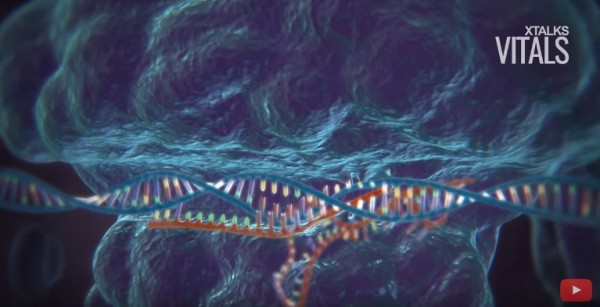By Prei Dy, | February 22, 2017

CRISPR technology could eliminate malaria. (YouTube)
Several scientists are seeing light that the controversial CRISPR gene-editing technology could be the much-awaited answer to solve epidemics such as malaria.
According to James Collins, evolutionary ecologist from Arizona State University, CRISPR can be used to edit a harmful trait like that of in a mosquito carrying malaria, and they can be spread within the population. However, he warned that CRISPR is meant to reduce a population size, and this is a total manipulation of nature.
Like Us on Facebook
He further pointed that in some instances, the purpose of gene drives (defined as the dilemma brought by a new technology) is to lessen the organism's population size, thereby likely affecting other processes such as pollination and parasites transmission. However, others would also use gene drives to eliminate diseases by bringing the carriers to extinction.
"By eliminating one plant species, you cause the proliferation of others, and this leads to a series of changes in the ecosystem. We need to understand the system well enough so that we can take ethical concerns into account as we make decisions," Collins said.
Currently, social scientists are attempting to determine better options to sample the human population "to get a better sense of what's tolerable and what's not tolerable in terms of their release."
While many scientists are already conducting more in-depth studies on other innovative advantages for CRISPR, several other researchers noted that a regulatory framework must be created to prevent potential detrimental effects, especially in the environment. A regulatory model that would balance ethics and human's desire to discover more should be made, Professor Jason Delborne of the National Carolina State University, noted.
Meanwhile, Chinese scientists have recently claimed to have produced a cloned cattle with increased resistance to bovine tuberculosis using the CRISPR/Cas9 technology for the first time. They altered the genetic code of the cattle involved in fighting the infection.
Learn more about CRISPR from this video below:
-
Use of Coronavirus Pandemic Drones Raises Privacy Concerns: Drones Spread Fear, Local Officials Say

-
Coronavirus Hampers The Delivery Of Lockheed Martin F-35 Stealth Fighters For 2020

-
Instagram Speeds Up Plans to Add Account Memorialization Feature Due to COVID-19 Deaths

-
NASA: Perseverance Plans to Bring 'Mars Rock' to Earth in 2031

-
600 Dead And 3,000 In The Hospital as Iranians Believed Drinking High-Concentrations of Alcohol Can Cure The Coronavirus

-
600 Dead And 3,000 In The Hospital as Iranians Believed Drinking High-Concentrations of Alcohol Can Cure The Coronavirus

-
COVID-19: Doctors, Nurses Use Virtual Reality to Learn New Skills in Treating Coronavirus Patients













